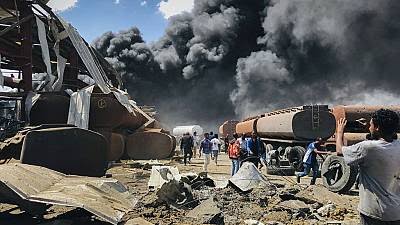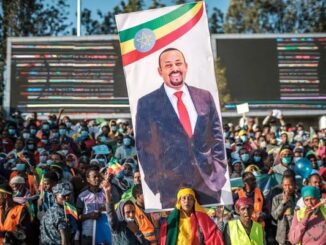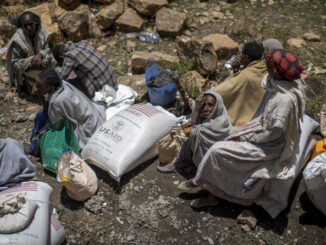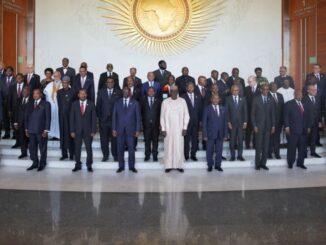
One person was injured in drone strikes on Mekelle University and a TV station in Ethiopia’s Tigray region, the station and a hospital official said, after Tigrayan forces voicedreadiness for another ceasefire with the federal government.
One of the two strikes on Tuesday hit the business campus of Mekelle University while the other hit Dimitsi Woyane TV station that is run by the regional government, said Kibrom Gebreselassie, chief executive officer at Ayder Referral Hospital. He cited a witness who arrived with a man wounded in the strike.
The second drone knocked the TV station off the air, Dimitsi Woyane said in a statement posted on Facebook. Images shared by the station appeared to show damaged transmission equipment on the building’s roof.
Tigrayan regional government spokesperson Getachew Reda said on Twitter that the business campus had been hit by drones.
Ethiopian military spokesperson Colonel Getnet Adane and government spokesperson Legesse Tulu did not respond to requests for comment.
ALSO READ: Insecurity: Churches shut down, nuns, priests flee Ethiopia’s Tigray region — Catholic Bishops
It was third instance of aerial strikes on Mekelle since the nearly two-year-old conflict resumed late last month after a five-month ceasefire. Each side has blamed the other for the renewed fighting.
Tigray People’s Liberation Front (TPLF), which governs Tigray, said on Sunday it was ready for a further truce without preconditions and would accept an African Union-led peace process. read more
Diplomats described the offer as a potential breakthrough. The Ethiopian government has not yet officially responded.
Former Nigerian president Olusegun Obasanjo, appointed as the AU’s chief mediator, met with the American envoy to the Horn of Africa region, Mike Hammer, on Monday, according to a Twitter post from Djibouti’s former ambassador to Ethiopia, Mohamed Idriss Farah, who was also present.
The TPLF dominated national politics for nearly three decades until Prime Minister Abiy Ahmed came to power in 2018.
The TPLF accuses Abiy of centralising power at the expense of Ethiopia’s regions. Abiy denies this and accuses the TPLF of trying to reclaim power, which it denies.
JOURNALISTS ARRESTED
The conflict has also repeatedly spilled into the neighbouring regions of Amhara and Afar.
Two Amhara journalists who publicly criticised the federal government were arrested last week, according to a police document seen by Reuters. The Amhara region, Ethiopia’s second most populous, has been a key part of Abiy’s powerbase.
Gobeze Sisay, the founder of Voice of Amhara, was accused of supporting the TPLF on social media. Meaza Mohamed, a journalist with Roha Media, was accused of encouraging Amhara people to allow the TPLF to pass through their areas, the police document showed.
“Amhara people, especially those close to the Tigrayan border – we are tired of war,” Gobeze said in a Facebook post a week ago.
Efforts by Reuters to contact the two journalists via their Facebook pages elicited no response.
Amhara journalists, politicians and militia members were among thousands arrested during a regional crackdown in May; some remain in prison.
An Ethiopian government spokesperson, the head of the Ethiopian Media Authority and a police spokesperson did not respond to requests for comment.
The Committee to Protect Journalists said last month it had documented the arrest of at least 63 journalists and media workers since the conflict erupted.




